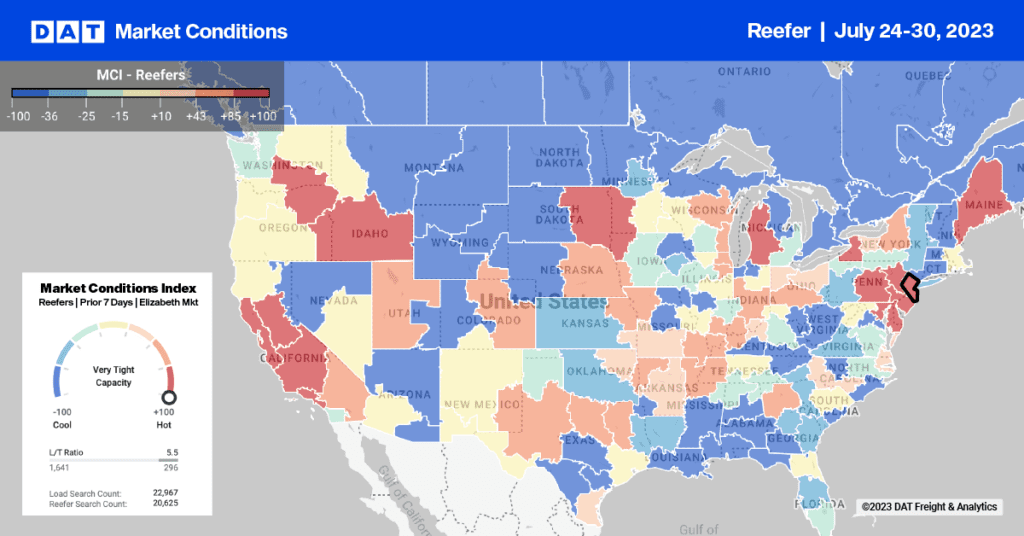Owner-operators and small fleet owners may think their business success depends on good rates, but the true make-or-break issue for these truckers is fuel mileage. If they can run their trucks at 6.5, 7 or even 8 miles per gallon, the fuel surcharge becomes a bonus program and they will be profitable at almost any reasonable rate.
As a broker or 3PL, if you can help those small truckers to be successful and profitable, they will return the favor by providing you with capacity and top-notch professional service, at a reasonable price, when you need it. What do owner-operators want from you? I surveyed dozens of O/Os online and through my Road Dog radio show on Sirius XM. Of course, their first response was to ask for high rates per mile, quick pay and limited detention times. That goes without saying, and I explained that you, the broker, can’t always control those factors.
Focusing on things that brokers can control, here are four areas for improvement in broker-trucker relationships, recommended specifically by owner-operators and owners of small for-hire fleets. I’ve included actionable steps you can take now to attract and retain the best, most professional of these small fleets, so you can rely on their loyalty for years to come:
1. Honesty – Offer clear, accurate information about every load, every time. Post it on the load board, if you can. If the carrier must call you to get the information, tell him everything in that first phone call and let him decide whether the load is right for him. Information should include not only the rate and contract terms, but also accurate pick-up times, any known or suspected issues that could affect loading, unloading, detention, routing or scheduling, so the trucker can plan accordingly.
2. Transparency – Answer the tough questions, even if they aren’t asked. If you give accurate and complete information, and tell them why there are omissions, if any, you can help to fix the perception issue. Maybe there are aspects of this particular load that are not good. You might think if he knows all the gory details, the carrier will turn down your load. That could happen, but it’s also possible that he will have a suggestion on how to fix it. On the other hand, you will want some answers from the trucker. Be sure to ask the right questions, to be sure that you are talking to a professional, reliable owner-operator and not one of the “other” guys. If you have a quick pay program at a reasonable rate, mention that up front. Many small fleets will gladly take advantage of that option, making it a win-win.
3. Courtesy – Give carriers the benefit of the doubt, starting with the first phone call. There are a lot of bad owner-operators out there, but there are a lot of good ones, too. They work really hard, they treat your shipper and receiver like a customer, and they go out of their way to provide excellent service. Brokers need to be able to differentiate, recognizing the good guys for their experience and professionalism. It starts with the first phone call. Be sure that everyone who answers the phone for your business treats each and every carrier with respect and courtesy, so you don’t chase the good ones away. Don’t allow your carrier relations efforts to be derailed just because the person who answers your phone had a bad morning.
4. Consistency – Provide a single point of contact. From the first contact to the final check call, do your best to limit the number of people who are working with that one trucker. At a minimum, he should get the same story from everyone. Otherwise, the trucker gets conflicting instructions, and pretty soon he is also resentful . More than one trucker told me: “I delivered the load and reported that it was delivered, but I’m still getting a check call from someone else at the same brokerage.” That sort of problem happens most often with a big broker, so owner-operators prefer to work with small brokers. No matter your size, be consistent in your communication. If there are substantive changes in the terms or requirements of the job, put them in writing, preferably in the rate agreement.
5. Focus – Devote staff and resources to retention, as well as recruitment. If you want to be the kind of broker that the best owner-operators will call repeatedly, focus on retention. Put a person in charge of creating better programs and relationships with owner-operators and small fleets. Survey O/Os and ask what they need and want from the relationship. Build a reputation for honesty, transparency, courtesy and consistency. Then ask your best O/Os to recommend others like them and to put in a good word for you. Word of mouth is extremely effective, and it can make or break your acceptance among O/Os. Treat them with respect and help them to succeed, and your access to capacity will grow along with your reputation.
Contact Kevin at kevinonxm@mac.com.


